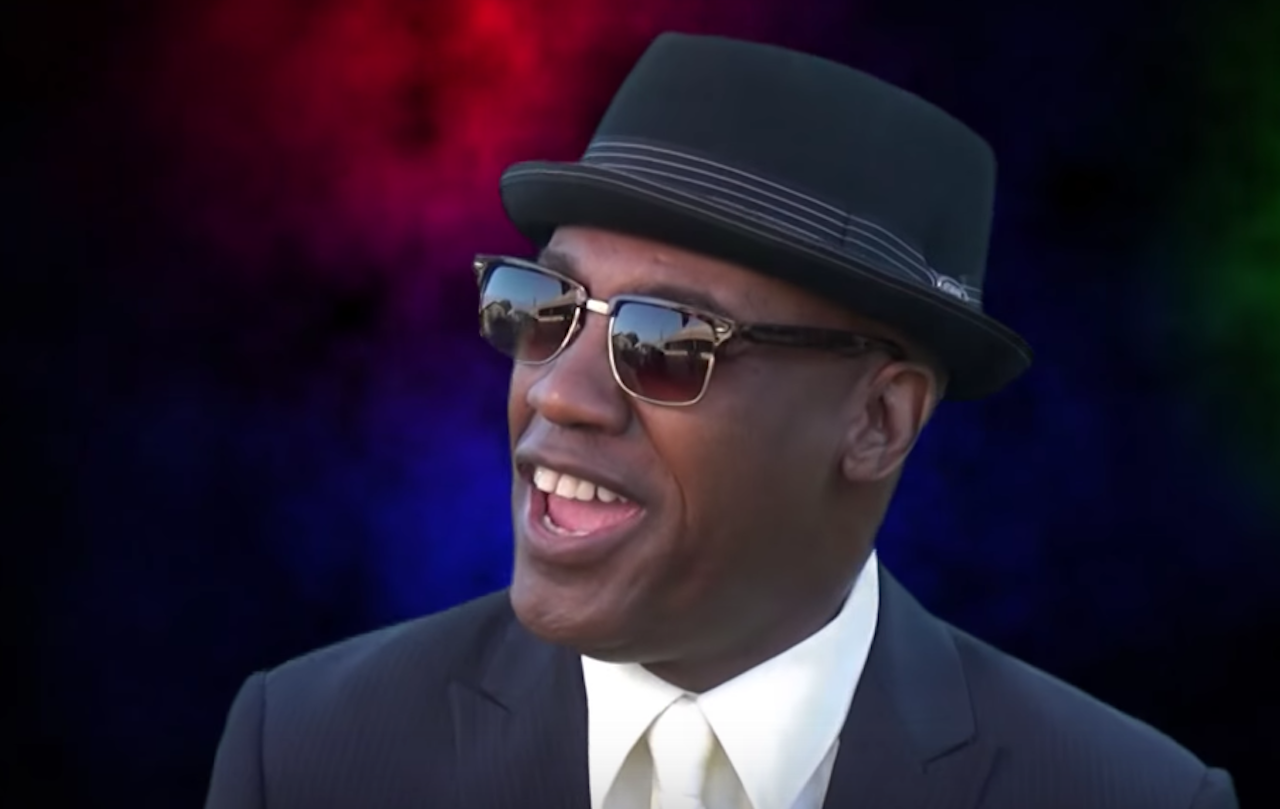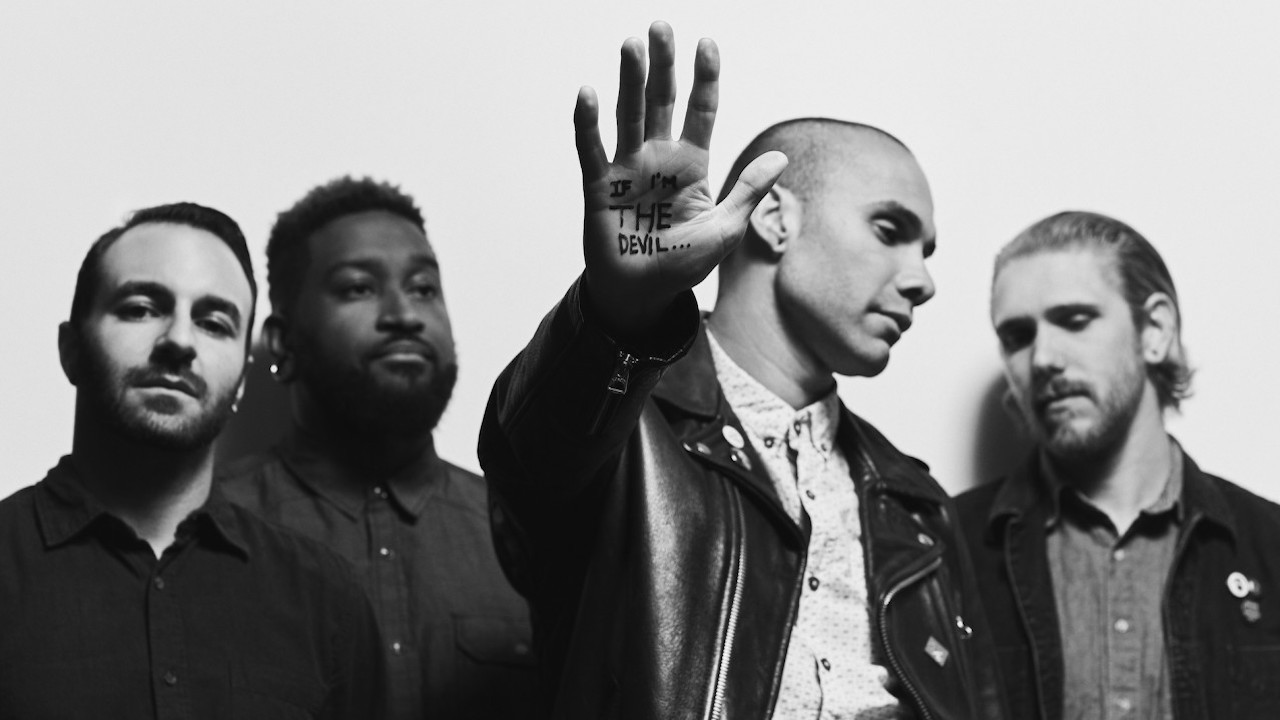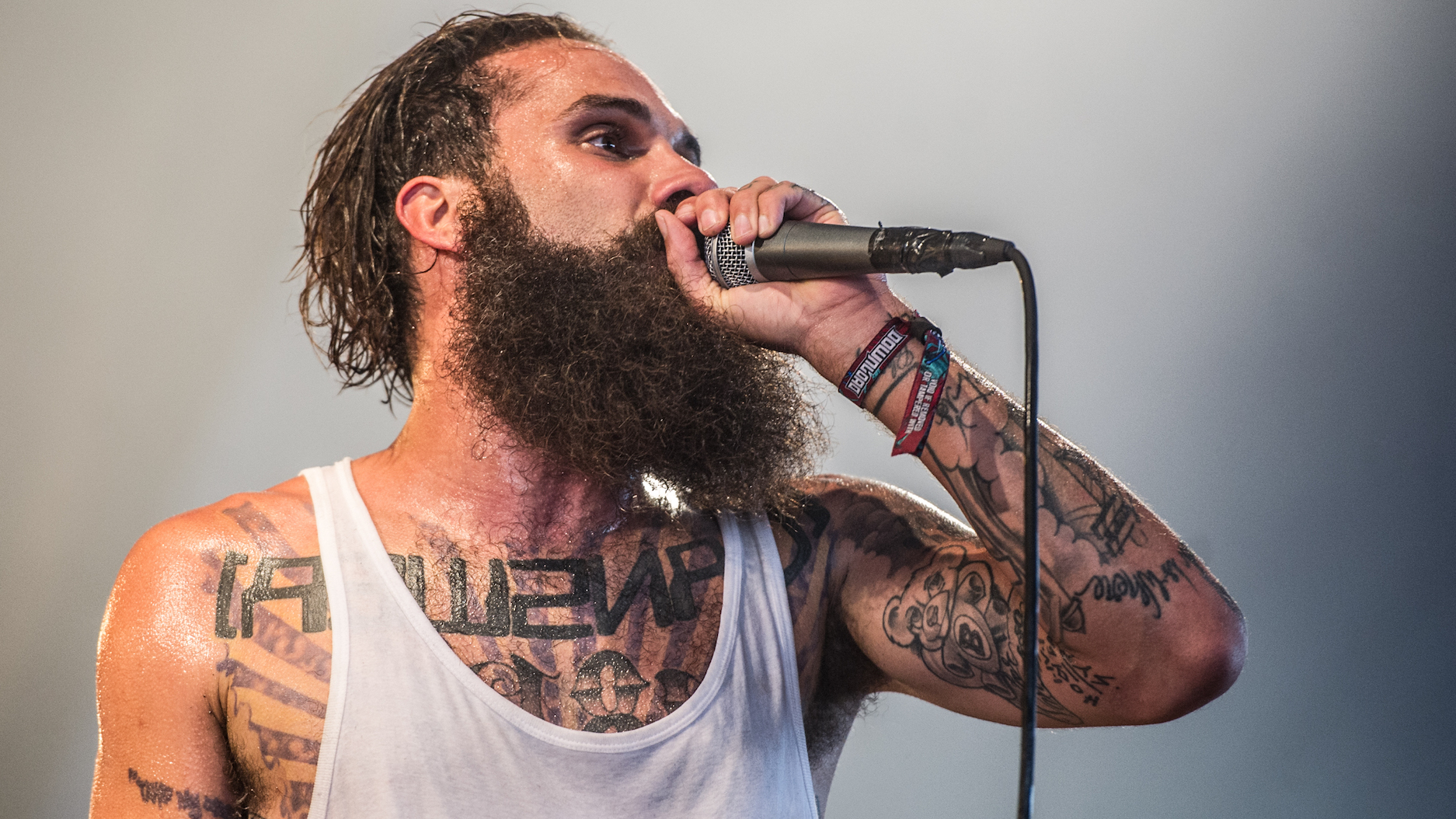Jason Butler has made no secret of the fact that letlive.’s new album, ‘If I’m The Devil…’, is going to be their most experimental yet. They’ve been pushing boundaries since they exploded onto the scene with their breakthrough second album ‘Fake History’, weaving melody into moments of abrasive hardcore.
Good Mourning America, the first single from If I’m The Devil…, surprised fans with its undeniable pop feel, and heavily political lyrics. But for Jason, the seemingly new sound is a culmination of ideas he’s had his whole life. Pop and soul came into his life before punk thanks to his father, Aalon Butler, who fronted a soul band, Aalon, and played Sade records to his son long before the young Jason discovered the likes of Bad Brains. Aalon had been a guitarist for The Animals’ Eric Burdon before forming the band in the 70s and releasing one album, Cream City. The band had already broken up by the time Jason was born, and despite his parents’ best efforts to get him to follow a more traditional career path, the young Jason knew what he wanted: to be like his dad.
We sat down with Jason to find out what his dad taught him about music, passion, and his own identity, and how he’s finally found the perfect balance between soul and punk.
Did you always want to follow in your dad’s footsteps?
Jason: “My father was without a doubt the most instrumental in influencing me to be a musician. Even though, ironically, him and my mother didn’t want me to be a musician. My dad had a really bad experience with the music industry, kind of like those horror stories where someone signs a deal, doesn’t look it over, and has no knowledge of how deceptive it can be. By the end he didn’t make the amount of money he was told he was making, and had a really horrible experience. So when I came around he was just getting by, he had to get a job as an accountant and play gigs at night, and they didn’t want me to do that. They actually tried to keep me away from being a musician. They let me listen to music, obviously, but I had to sneak into my dad’s garage to play guitar as a kid. They just wanted me to go to college and do well in academia or sport.”

Did that cause tension at home?
“A few times they caught me, and eventually they just gave in. I was about 11 when my dad bought me a guitar. I wouldn’t put it down, I had blisters and calluses from trying to learn all these things, because I had to try and squeeze everything into the hour my parents gave me between homework and going to baseball or soccer or basketball practice. But when my parents would go to bed, I’d be up playing guitar ‘til four or five in the morning, then get up at 6.30 to go to school. I was so obsessed. I started a band at about 14, because things at home became a little rocky with me and my parents, so I kinda got to take the rebellious route and do what I wanted. I got super obsessed with that. I experience huge bouts of obsession with things, and music has always been the most constant.”
You said your parents weren’t keen initially on you being a musician – perhaps understandably given your dad’s experience in the industry – so were you discouraged from going to his gigs too, or did you see him play live?
“Yeah, those were my first shows. Sometimes he’d play Tony Roma’s, which was a rib place down the road from my house. He was just out there trying to play whatever he could because he got fucked so hard by the industry. I’d see him at giant venues and festivals with people singing along to his music, then see him playing for people eating ribs in a restaurant. He wasn’t really tripping on trying to make money because he knew that ship had probably sailed. Seeing his dedication inspired me, whereas my mother was trying to get him to buckle down and make more money in the real world so financially we could be better off as a family. He had the bug, and still to this day, he still has it. Whether or not that meant we had the closest father-son relationship, it did inspire me to always try hard to do what it was you felt like you were supposed to do.”

What kind of records did he play at home?
“His favourite band was Steely Dan. He’d play anything from that to Earth Wind and Fire, he was always trying to school me a little bit on what he played. He was in Little Richard’s band, so he was showing me Little Richard, James Brown, Tower of Power, Parliament… My mom was listening to Abba and Meat Loaf and Sade. Some of my most vivid memories are hearing my dad cover Sade and Bob Marley. Then he tried to show me some rock shit early, but I never took to it. I can’t sit here and be like, ‘yeah, Led Zeppelin and Pink Floyd!’ I didn’t come from that, and I don’t want people to think I’m out here trying to front that I know all about that shit, because I’m not from that. For me it was about soul, then my uncle from Scotland, uncle Thomas [Jason’s mum is Glaswegian], bought me a Bush record, and OK Computer by Radiohead when I was about 10, and that’s when it clicked. Then I got into punk rock from skateboarding, because it was in the videos, on the t-shirts, that’s kind of how that came about.”
You’ve always talked openly about growing up as a mixed-race child in Inglewood, California. When you started the band at 14, did you find music helped you connect with others from different backgrounds?
“It totally did, which I didn’t expect. We were playing punk rock music, and that seemed quite demographic-specific at the time. My whole thing from the beginning was to try and bring people together with the music we were playing. I know that sounds so cliché but I was from a completely disparate and different area to the people I was playing music with. Punk rock wasn’t very prevalent in my area or culture, really. So once I learned about bands like Bad Brains, or Fishbone, or the drummer of Dead Kennedys, Angry Samoans – there are people of colour playing punk music – it really made me think we could cross these cultures. It helped me find an identity and accept the fact that I like something that maybe isn’t immediately within my culture, but can certainly represent me.”
It seems like your dad’s soul music is also part of your identity, and that it’s always been there in letlive. with the ‘soul punx’ thing. Do you think his music did influence you even though it’s so different from yours?
“I’d say so. I mean, I always wanted to be better than my dad. I was like alright, you play guitar, I wanna play better. You sing, I wanna sing better. I’m not saying he was bad, but when I’d finish writing a song I’d go, ‘Now I need to do more; this is where my dad would stop.’ It was all part of my evolution, but I think it hindered me a little bit because I didn’t know when to stop and songs would be fucking crazy. In the end it came down to writing a song that spoke to me and hoping that that translated to people listening. Also, just having a penchant for pop. Not bubblegum pop, but having a pop sensibility in my life. It’s something I always held, even in the early letlive. stuff. I wanted choruses and certain melodies and harmonies and all those things. I think my background and being surrounded by pop, soul, all those things, certainly influenced me, and I had to learn how to embrace it. And after embracing it, I had to learn how to properly integrate it into the kind of punk or heavy rock we were playing. And I think finally we did, I finally figured out how to do that and fuse the two in this new record.”
That soul and punk balance is lot more audible on the new album; it has a much softer sound than your previous work.
“Yeah, we’re just trying to be heavy in another sense. It’s heavy lyrically with the message; I want people to feel that weight now, as opposed to sonically. I love heavy music, and I don’t feel this is for all bands, but I feel like for letlive., if we were to keep doing something sonically abrasive or heavy, it would become a sort of burden on people having to dissect it in that abrasive nature. I feel there are so many layers and textures on the new record that they can unpack in a new way. I feel like it’s more fun. I love change. That’s what art is, it’s evolution.”
If I’m The Devil… is released on June 10 via Epitaph Records.
